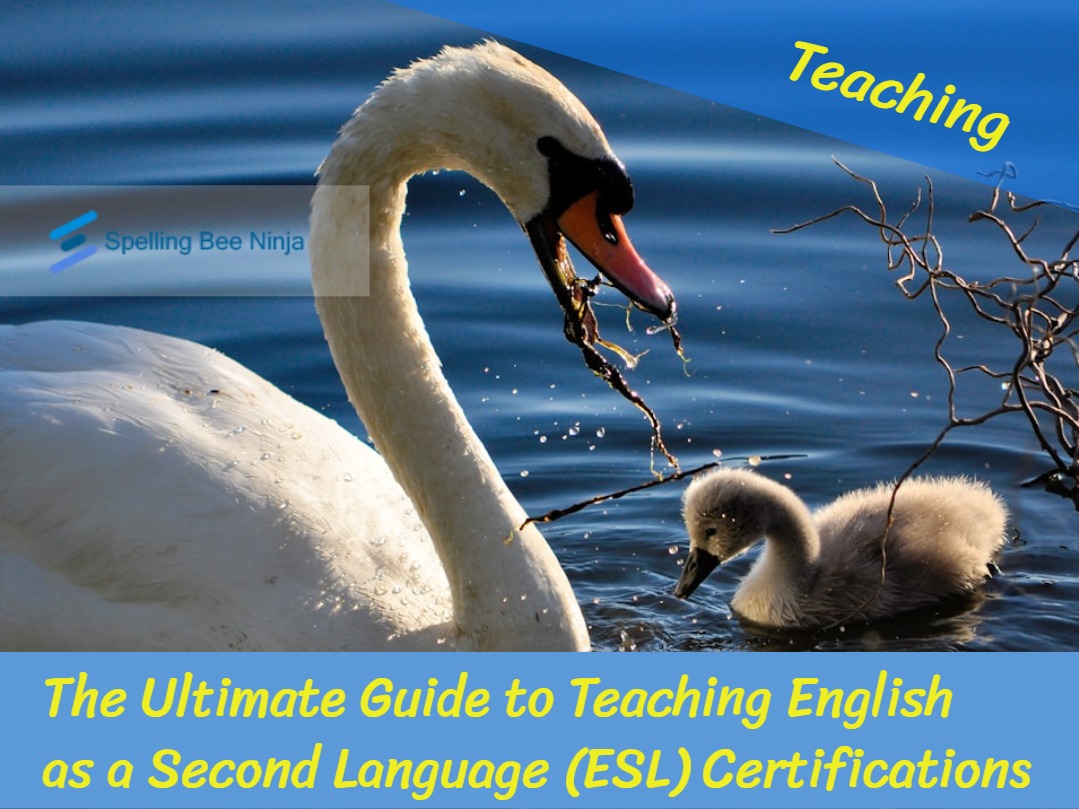Teaching English as a Second Language (ESL) has become an increasingly popular career choice for many educators worldwide. To embark on this rewarding journey, obtaining the right certification is crucial. This guide will provide a comprehensive overview of the different types of ESL certifications, each with a dedicated paragraph, detailed descriptions, and links for further exploration.
TEFL (Teaching English as a Foreign Language)
Overview
TEFL certification is one of the most recognized and widely sought-after qualifications for teaching English abroad. This certification is designed for educators who plan to teach English in countries where English is not the primary language. TEFL courses typically cover teaching methodologies, classroom management, lesson planning, and practical teaching experience.
Details
TEFL programs can vary in duration, ranging from intensive four-week courses to more extensive six-month programs. They can be taken in person or online, providing flexibility for different schedules and learning preferences. Accredited TEFL certifications often require at least 120 hours of instruction.
Links
– International TEFL Academy
– TEFL.org
TESOL (Teaching English to Speakers of Other Languages)
Overview
TESOL is another prominent certification that prepares educators to teach English to non-native speakers. While TEFL is focused on teaching English abroad, TESOL encompasses both teaching English abroad and within English-speaking countries to immigrants and refugees.
Details
TESOL certification programs cover similar content to TEFL courses, including teaching strategies, linguistic theory, and cultural issues. Programs can be found at universities, private language schools, and online platforms. The duration and intensity of TESOL courses can vary significantly, from short courses to comprehensive graduate-level programs.
Links
– TESOL International Association
– Bridge TEFL
CELTA (Certificate in Teaching English to Speakers of Other Languages)
Overview
CELTA, awarded by Cambridge Assessment English, is highly respected in the ESL teaching community. It is specifically designed for individuals who are starting their teaching careers, providing hands-on experience and practical teaching skills.
Details
CELTA courses are rigorous and usually last around four to five weeks full-time, though part-time options are available. The curriculum includes teaching practice with real students, observation of experienced teachers, and feedback sessions. CELTA is often considered more demanding than standard TEFL or TESOL programs due to its intensive nature and high standards.
Links
– Cambridge English CELTA
– StudyCELTA
DELTA (Diploma in Teaching English to Speakers of Other Languages)
Overview
The DELTA is an advanced qualification offered by Cambridge Assessment English for experienced ESL teachers. It is intended for those who want to deepen their knowledge and skills and often leads to higher-level teaching or administrative roles.
Details
The DELTA is divided into three modules that can be taken independently or together. These modules cover understanding language, methodology and teaching practices, and a professional development assignment. The DELTA program is highly demanding and typically takes several months to complete, requiring significant teaching experience and a CELTA or equivalent qualification as a prerequisite.
Links
– Cambridge English DELTA
– International House
Online ESL Certifications
Overview
With the rise of digital education, online ESL certifications have become increasingly popular. These certifications offer flexibility and convenience, allowing individuals to complete their training from anywhere in the world.
Details
Online ESL programs range from introductory courses to advanced certifications. They typically include video lectures, interactive modules, and assignments. Some programs also offer live teaching practice sessions via video conferencing. While online courses can be highly effective, it is essential to ensure they are accredited and recognized by employers.
Links
– Coursera – TESOL Certificate
– Oxford TEFL Online
Specialized ESL Certifications
Overview
In addition to general ESL certifications, there are specialized programs tailored to specific teaching contexts or student populations. These certifications can enhance your skills and employability in niche areas of ESL teaching.
Details
Specialized certifications include Teaching Business English, Teaching English to Young Learners, and Teaching English Online. These courses focus on the unique challenges and methodologies associated with their respective fields. They often require a foundational TEFL or TESOL certification as a prerequisite.
Links
– International House – Business English Teaching
– TEFL Online – Young Learners
University Programs and Degrees in ESL
Overview
For those seeking a more comprehensive education, university programs and degrees in ESL offer in-depth training and academic credentials. These programs are ideal for individuals pursuing long-term careers in ESL education, research, or administration.
Details
University programs can range from undergraduate degrees in TESOL to master’s and doctoral degrees in applied linguistics or education with a focus on ESL. These programs combine theoretical coursework with practical teaching experience and often include research components. Graduates of these programs are well-prepared for advanced teaching positions and leadership roles.
Links
– University of Birmingham – MA TESOL
– New York University – MA in TESOL
Which Certification is Right for You?
Considerations
Choosing the right ESL certification depends on various factors, including your career goals, prior experience, and preferred teaching context. Here are some key considerations:
1. **Career Goals**: If you aim to teach abroad, a TEFL or CELTA might be the best fit. For teaching in English-speaking countries, a TESOL or a university degree may be more suitable.
2. **Experience Level**: CELTA and DELTA are geared toward those with different levels of experience, with CELTA for beginners and DELTA for seasoned educators.
3. **Specialization**: If you have a specific interest, such as teaching business professionals or young learners, look for specialized certifications.
4. **Flexibility**: Online certifications offer flexibility in terms of location and schedule, which can be beneficial for those with other commitments.
5. **Accreditation**: Ensure the certification program is accredited and recognized by potential employers.
Personalized Path
Reflect on your individual circumstances and career aspirations. Research various programs and seek advice from current ESL teachers to make an informed decision.
Conclusion
Obtaining the right ESL certification is a critical step in becoming an effective and successful English teacher. Whether you opt for a TEFL, TESOL, CELTA, DELTA, or a specialized or online certification, each type offers unique benefits tailored to different teaching environments and career stages. By carefully considering your goals and the options available, you can choose the certification that best aligns with your aspirations and sets you on a path to a fulfilling career in teaching English as a second language.
For more information and to explore specific programs, visit the provided links and start your journey towards becoming a certified ESL teacher today.


